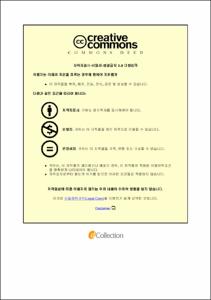간이식 환자를 돌보는 간호사의 간이식후 당뇨에 대한 지식과 태도
- Abstract
- The purpose of this study is to examine nurses’ knowledge and attitude toward post-transplantation diabetes mellitus, focusing on nurses who care for liver transplant patients. The findings of this study can be used as the basic information for developing education program for post transplantation diabetes mellitus management.
Data were collected from nurses working at a university hospital in Seoul from March 15, 2019 to March 31, 2019. The knowledge and attitude toward post-transplantation diabetes mellitus were respectively measured by using 1) a post-liver transplantation diabetes mellitus knowledge tool developed by researchers based on literature review and expert opinion, and 2) Diabetes Attitude Scale (DAS-3) developed by the Michigan diabetes research center [MDRC] (1988). To analyze data, descriptive statistics (e.g., frequency, percentage, mean, & standard deviation), independent t-test, Oneway ANOVA, and Scheffe and Pearson's correlation were conducted using IBM SPSS v.25.0 statistical program.
The results of this research were as follows.
1) The average age of the participants was 30.3 years, and 52.9% of the participants (n=55) had clinical experience between 1 to 3 years.
2) 81.7% (n=85) had the experience in caring post-liver transplantation diabetes mellitus patients, and 30.5% (n=32) took the education in post-liver transplantation diabetes mellitus patients.
3) The average score of post-liver transplantation diabetes mellitus knowledge was 16.28±3.605 out of 23 with 70.7% of correct answers. Among sub-dimensions of post-liver transplantation diabetes mellitus knowledge, Complication and prevention topped the list with 80.1% of correct answers, followed by Mechanism (70.2%), Risk factors (58.3%).
4) The average score of post-liver transplantation diabetes mellitus attitude was 3.73 out of 5 (115.63±2.752 out of 155). Specifically, Need of special Training topped the list with 4.14, followed by Seriousness of PTDM (3.81), Patient autonomy (3.74), Psychosocial impact of PTDM (3.72), Value of tight control (3.29).
5) There was the significant positive relationship between an education level and post-liver transplantation diabetes mellitus knowledge (t=-2.06, p=.041). There was the significant difference among work site (F=10.55, p<.001); specifically, participants in Sub-ICU showed the top average score, followed by those in a surgical ward and ICU. There was no significant difference in post-liver transplantation diabetes mellitus attitude depending on general characteristics.
6) The participants with the experience in caring post-liver transplantation patients showed the significantly higher score of post-liver transplantation diabetes mellitus knowledge (t=3.50, p<.001). Also, the participants with the education experience about post-transplantation diabetes mellitus showed the significantly higher score of post-liver transplantation diabetes mellitus knowledge (t=2.16, p=.033). There was no significant difference in post-liver transplantation diabetes mellitus attitude depending on liver transplant patients caring experience and transplantation diabetes mellitus education experience.
7) There was the significant and positive correlation between post-liver transplantation diabetes mellitus knowledge and attitude (r=.21, p=.027).
The results of this study suggest that there is a need for the educational program specialized in post-liver transplantation diabetes mellitus including Risk factor that showed the lowest score in post-liver transplantation diabetes mellitus knowledge. Further, there is a need for a strategy to encourage nurses to voluntarily participate in the educational program should be considered when designing the education program. Additionally, it is necessary to develop a program that includes a nurse 's synchronization strategy to change the negative attitude toward the Value of tight control among post transplantation diabetes mellitus.
|본 연구의 목적은 간이식 환자를 돌보는 간호사의 간이식후 당뇨에 대한 지식과 태도를 파악하여 간이식후 당뇨 간호 관리를 위한 간호교육 프로그램의 기초자료를 제공하기 위해 실시된 서술적 조사연구이다.
서울 소재 일 상급종합병원에서 근무하는 간호사 104명을 대상으로 2019년 3월 15일부터 3월 31일까지 자료를 수집하였다. 연구 도구는 연구자가 문헌 고찰과 전문가 의견을 바탕으로 개발된 간이식후 당뇨 지식 도구와 Michigan diabetes research center[MDRC](1988)에서 개발한 Diabetes Attitude Scale(DAS-3)를 번역 및 수정보완한 태도 측정 도구였다. 수집된 자료는 IBM SPSS v.25.0 통계프로그램을 사용하여 빈도, 백분율, 평균, 표준편차, Independent t-test, Oneway ANOVA, Scheffe, Pearson’s correlation을 이용하여 분석하였다.
본 연구결과는 다음과 같다
1) 연구대상자의 평균 연령은 30.3세였으며, 임상경험은 1-3년 미만인 55명(52.9%)으로 많았다.
2) 간이식후 당뇨 간호 경험은 85명(81.7%)이었으며, 간이식후 당뇨 교육 이수 경험은 32명(30.8%)이었다.
3) 간이식후 당뇨 지식에 대한 평균은 23점 만점에 16.28±3.605점, 정답률 70.8%이었다. 하부 영역별 정답률은 간이식후 당뇨 합병증과 예방관리(80.1%), 발생기전(70.2%), 위험인자(58.3%) 순으로 나타났다.
4) 간이식후 당뇨 태도는 155점 만점 115.63±2.752점, 5점 만점 3.73점이었다. 하부 영역별로 보면, 특별한 교육의 필요성 4.14점, 당뇨의 심각성 3.81점, 환자 자율성은 3.74점, 당뇨의 심리 사회성 3.72점, 혈당조절의 가치성 3.29점 순으로 나타났다.
5) 간이식후 당뇨 지식은 교육수준(t=-2.06, p=.041), 현 근무 병동(F=10.55, p<.001)에 따라 유의한 차이가 있는 것으로 나타났다. 간이식후 당뇨 태도는 일반적 특성에 따른 유의한 차이를 나타나지 않았다.
6) 간이식후 당뇨 지식은 간이식후 당뇨 간호 경험(t=3.50, p<.001), 간이식후 당뇨 교육 이수 경험(t=2.16, p=.033)에 따라 유의한 차이를 보이는 것으로 나타났다. 간이식후 당뇨 태도는 간이식후 당뇨 간호 경험과 교육에 따른 차이는 보이지 않는 것으로 나타났다.
7) 간호사의 간이식후 당뇨 지식과 태도와는 유의한 양의 상관관계를 나타났다(r=.21, p=.027).
본 연구의 결과를 통해 간이식후 당뇨 위험인자를 포함하여 전문적이고 표준화된 간이식후 당뇨 교육프로그램 개발이 요구되며, 간호사의 자발적 참여를 위한 전략과 혈당 조절의 가치성에 대한 간호사의 긍정적 태도를 동기화 할 수 있는 전략이 요구된다.
- Issued Date
- 2019
- Awarded Date
- 2019-08
- Type
- Dissertation
- Alternative Author(s)
- Yoo Jung A
- Affiliation
- 울산대학교
- Department
- 임상전문간호학
- Advisor
- 박정윤
- Degree
- Master
- Publisher
- 울산대학교 임상전문간호학
- Language
- kor
- Rights
- 울산대학교 논문은 저작권에 의해 보호받습니다.
- Appears in Collections:
- Industry > Professional Clinical Nursing
- 파일 목록
-
-
Download
 200000218870.pdf
기타 데이터 / 902.75 kB / Adobe PDF
200000218870.pdf
기타 데이터 / 902.75 kB / Adobe PDF
-
Items in Repository are protected by copyright, with all rights reserved, unless otherwise indicated.